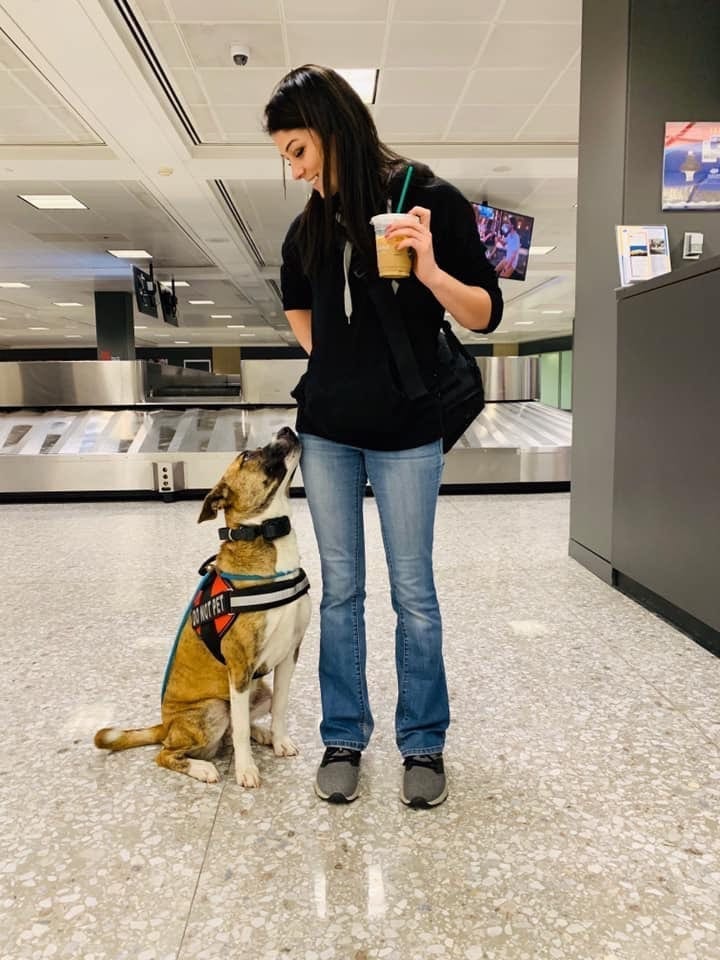Crucial Canine Educating Methods for a Lifetime of Great Behavior
Efficient pet dog training is fundamental to promoting a well-behaved companion that improves our lives. Recognizing canine habits and using socialization strategies can stop potential problems before they occur.
Recognizing Canine Habits

Moreover, recognizing the innate reactions and drives of a dog-- such as victim drive, social communications, and territorial actions-- makes it possible for trainers to prepare for and handle certain habits. A pet with a solid victim drive may need various methods than one that is extra socially inclined.
Additionally, very early socialization and exposure to different environments dramatically affect a dog's habits and character. Favorable experiences during crucial developing periods can cause well-adjusted adult canines, whereas unfavorable experiences may cause stress and anxiety or hostility.
Favorable Reinforcement Techniques
Among the different canine training methods, favorable support methods stick out for their effectiveness and ability to strengthen the bond in between canine and instructor (Ohana K9 Academy). This method highlights satisfying wanted habits instead of punishing undesirable ones, promoting an extra participating and trusting relationship
Favorable support can take several forms, including deals with, praise, playthings, or playtime. The secret is to supply instant benefits when the dog shows the preferred habits, permitting them to make the connection between the action and the positive outcome. For example, if a dog rests on command, providing a treat today reinforces that behavior, making it most likely to be repeated.
Uniformity is critical in positive support training. Instructors need to make use of the exact same signs and rewards to stay clear of confusing the pet. Furthermore, varying the incentives can keep the pet's passion and inspiration, transitioning from regular treats to periodic appreciation or play as the dog masters the behavior.

Basic Command Training
Structure on the structure developed through positive support techniques, standard command training offers as a vital action in establishing an accommodating canine. This training usually encompasses necessary commands such as "sit," "remain," "come," and "down - Ohana K9 Academy." Each command plays a vital duty in fostering reliable communication in between the pet dog and its proprietor, improving the total bond
Begin with brief, concentrated sessions lasting no more than 5 to 10 mins to preserve your canine's interest. Make use of high-value treats as benefits, ensuring the pet dog associates helpful hints proper habits with positive results.
Perseverance is critical; pets may call for various repeatings to comprehend commands fully. Gradually increase the complexity by presenting variations or distractions once your pet dog dependably responds. Routine practice reinforces found out commands, solidifying them in your dog's great post to read behavior repertoire. Ultimately, fundamental command training not only fosters obedience yet likewise enhances security and helps with enjoyable interactions throughout walks and play, laying the groundwork for more innovative training strategies in the future.
Socialization Techniques
In the realm of pet training, socializing techniques are important for cultivating a well-adjusted and certain canine friend. Reliable socializing entails exposing your pet dog to a selection of settings, individuals, and various other pets in a controlled and positive way. The key purpose is to aid your canine develop a convenience level with diverse experiences, which can dramatically lower fear and stress and anxiety in unfamiliar circumstances.
Begin socializing throughout the essential developmental window of 3 to 14 weeks, when young puppies are most responsive to brand-new experiences. Present your canine to various settings, such as parks, city locations, and homes with various other animals. Make sure these experiences are positive by making use of treats and praise to enhance excellent habits.
Team training classes are an outstanding means to expose your dog to various other pet dogs and people in an organized environment. This permits monitored communications, assisting your dog discover suitable social signs. Regular outings and playdates with genteel pets can further improve social skills.
Addressing Behavioral Problems
Dealing with behavioral concerns in pets is a crucial aspect of training that calls for a systematic method and understanding of canine habits. Usual issues such as barking, chewing, aggressiveness, and anxiety can come from various elements, including lack of socialization, not enough workout, or perhaps medical concerns.

In addition, establishing an organized regimen that includes routine workout and psychological stimulation can substantially reduce behavioral issues. As an example, interactive playthings can maintain a pet engaged and reduce devastating tendencies. In situations of serious hostility or anxiety, talking to an expert pet instructor or a veterinary behaviorist may be essential.
Conclusion
In final thought, reliable dog training strategies, including favorable support, basic command training, and socializing, are important for promoting great behavior throughout a pet's life. Dealing with behavioral issues with an organized technique not only enhances obedience however likewise enhances the bond in between pet dogs and their owners.